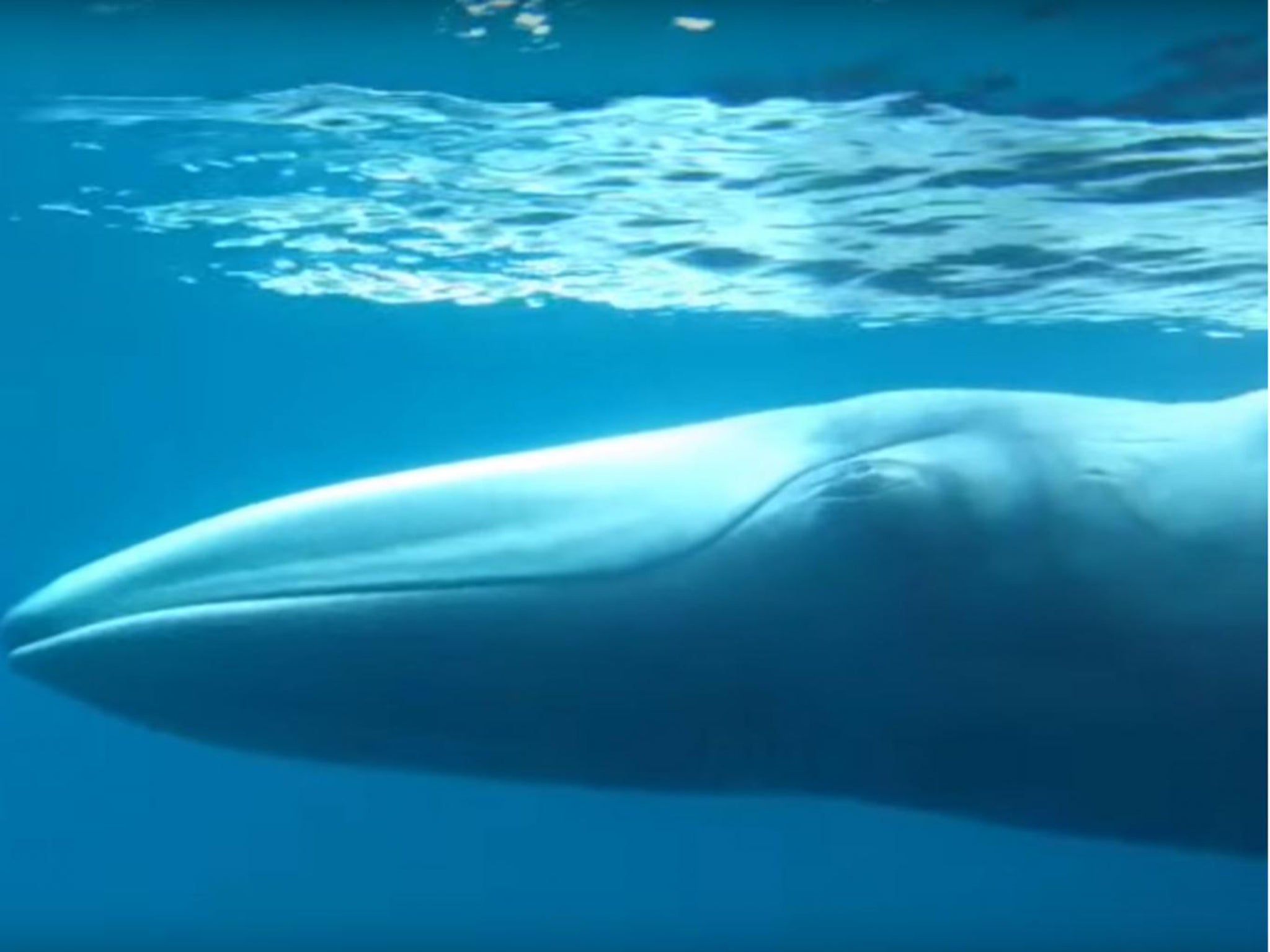One of the world's most mysterious whales filmed for the first time
Omura's whales are 12 metres long and have previously never been seen alive

Your support helps us to tell the story
From reproductive rights to climate change to Big Tech, The Independent is on the ground when the story is developing. Whether it's investigating the financials of Elon Musk's pro-Trump PAC or producing our latest documentary, 'The A Word', which shines a light on the American women fighting for reproductive rights, we know how important it is to parse out the facts from the messaging.
At such a critical moment in US history, we need reporters on the ground. Your donation allows us to keep sending journalists to speak to both sides of the story.
The Independent is trusted by Americans across the entire political spectrum. And unlike many other quality news outlets, we choose not to lock Americans out of our reporting and analysis with paywalls. We believe quality journalism should be available to everyone, paid for by those who can afford it.
Your support makes all the difference.One of the world's most mysterious whales has been filmed for the first time in its natural habitat off the coast of Madagascar.
The Omura's whale, which has a body almost as long as a school bus, had only been given its name based on dead specimens in 2003.
Since then, there had been no confirmed sightings until a team of marine biologists discovered a population of the elusive creatures living near Madagascar.
In the video, the whale can be seen swimming a few metres beneath the surface of the ocean.
Growing up to 12 metres long, Omura's whales have asymmetrical black and white markings along the entire length of their body. Their right side is lighter while the left is darker.
“I was excited because I knew we had found Omura’s whale," lead researcher Doctor Salvatore Cerchio told the BBC.
“Some teammates thought it might be a new species and began to think of new names.”
Over two years, Dr Cerchio's team observed 44 groups and collected skin biopsies from 18 adult whales.
They found Omura's whales likely feed on tiny zooplankton by taking in large mouthfuls of water and filtering it through hairy sieve-like teeth, known as baleen.
Dr Cerichio said he will return to Madagascar to study the whales' vocalisations, behaviour and population characteristics. He is looking at tagging the animals to track their movements.
Join our commenting forum
Join thought-provoking conversations, follow other Independent readers and see their replies
Comments